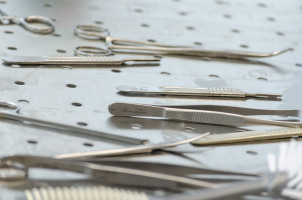
A small, early clinical trial led by the Icahn School of Medicine at Mount Sinai and collaborators has shown that directly injecting an immune-activating compound into prostate tumours before surgery appears safe and may help the immune system recognise and attack cancer cells.
Published in the online issue of Med, a Cell Press journal, the phase I study (NCT03262103) tested a viral-mimicking drug called poly-ICLC in 12 men with intermediate- to high-risk prostate cancer.
The neoadjuvant (presurgery) treatment was delivered in two doses—first into the tumour to trigger an immune response, then into a muscle to boost it.
The goal was to train the immune system to recognise the cancer before it was removed.
Using imaging to guide the injections, researchers delivered the drug into the tumour and then tracked changes in tissue and blood.
The therapy was well tolerated and appeared to jump-start immune activity—drawing immune cells into the tumour, shifting gene patterns, and creating small pockets of immune cells where none had been before, say the investigators.
“Our findings provide an important proof of concept that the immune system in prostate cancer can be reawakened,” says physician-scientist Ash Tewari, MD, MBBS, MCh, who led the phase 1 trial and is senior and corresponding author.
Dr. Tewari is the Kyung Hyun Kim, MD Professor and System Chair of the Milton and Carroll Petrie Department of Urology at the Icahn School of Medicine.
“By delivering poly-ICLC straight into the tumour under MRI–ultrasound fusion guidance, we were able to engage local immunity before surgery. The same approach could be used to inject other immune agents or combinations, opening new paths for targeted treatment in the prostate. If larger studies confirm these results, this tumour-focused ‘autovaccination’ strategy could become an innovative way to make immunotherapy more effective for men with aggressive prostate cancer.”
In addition to showing signs of immune activation, several patients demonstrated favourable early pathology changes following treatment.
While the study’s size limits conclusions about long-term outcomes, the findings suggest this strategy could help reprogram “cold” tumours into “immune-active” ones, reported the investigators.
“High-risk prostate cancer often returns after treatment and has been largely resistant to immunotherapy because the tumours don’t naturally trigger strong immune responses,” says lead and corresponding author Sujit S. Nair, PhD, Assistant Professor and Director of Genitourinary Immunotherapy Research in the Department of Urology at the Icahn School of Medicine.
“We wanted to test whether we could safely ‘warm up’ these tumours by activating the immune system before surgery, and the early signals are encouraging. To our knowledge, this is the first prostate cancer trial to test intratumoural immunotherapy. Our method doesn’t rely on a single tumour target and trains the immune system to recognise the whole tumour,” he added.
The results provide a basis for testing how this approach might be combined with standard or experimental immunotherapies in future trials.
“The idea of transforming a tumour into its own vaccine by locally stimulating immune recognition is one of the most exciting directions in cancer research,” says corresponding author Nina Bhardwaj, MD, PhD, Ward-Coleman Chair in Cancer Research, and Director of the Vaccine and Cell Therapy Laboratory at the Icahn School of Medicine.
“This work shows that even tumours once thought to be invisible to the immune system can potentially be made responsive.”
Next, the research team plans to move forward with larger, controlled phase 2 clinical trials to test clinical benefit and explore combination strategies with hormone therapies or other immunotherapies.
They will also study how this approach reshapes the tumour–immune relationship over time and whether it can help identify which patients are most likely to benefit.
The paper is titled “Prostate cancer in situ autovaccination with the intratumoural viral mimic poly-ICLC: Modulating the cold tumour microenvironment.”
The study’s authors, as listed in the journal, are Sujit S.Nair, Dimple Chakravarty, Sreekumar Balan, Alexander Hakansson, Manuel Duval, Elai Davicioni, Yang Liu, Swati Bhardwaj, Tin Htwe Thin, Monica Garcia-Barros, Kenneth Haines, Majd Al Shaarani, Rachel Weil, Marcia Meseck, Parita Ratnani, Monali Fatterpekar, Elena Gonzalez-Gugel, Adam Farkas, Vinayak Wagaskar, Ivan Jambor, Kacie Schlussel, Cristina Pasat-karasik, Kamala Bhatt, Zachary Dovey, Adriana Pedraza, Akriti Gupta, Dara Lundon, Ante Peros, Sneha Parekh, Lily Davenport, Xiangfu Zhang, Raghav Gupta, Macy Robison, Cynthia Knauer, Ethan Ellis, Dmitry Rykunov, Boris Reva, Babu Padanilam, Matthew D.Galsky, Rachel Brody, Mani Menon, Andres M.Salazar, Nina Bhardwaj, and Ashutosh K.Tewari.
The work was funded by the Arthur M.Blank Family Foundation.
See the journal paper for details on conflicts of interest: [https://doi.org/10.1016/j.medj.2025.100879].
Source: The Mount Sinai Hospital / Mount Sinai School of Medicine
The World Cancer Declaration recognises that to make major reductions in premature deaths, innovative education and training opportunities for healthcare workers in all disciplines of cancer control need to improve significantly.
ecancer plays a critical part in improving access to education for medical professionals.
Every day we help doctors, nurses, patients and their advocates to further their knowledge and improve the quality of care. Please make a donation to support our ongoing work.
Thank you for your support.